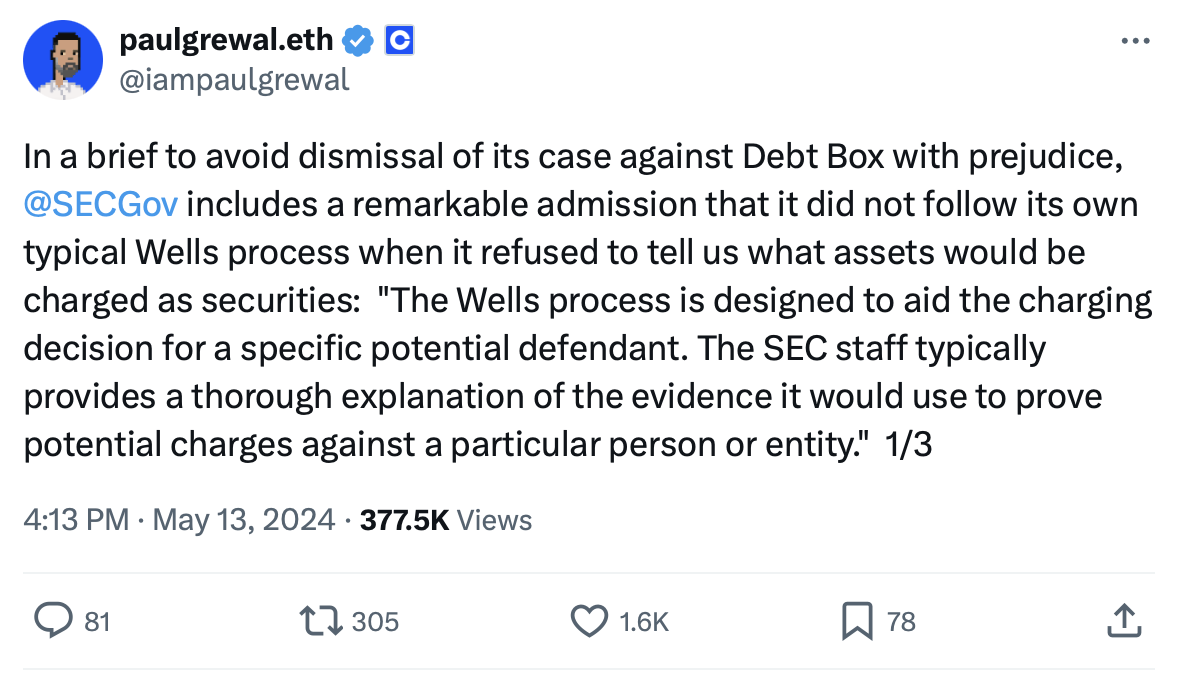The US Securities and Exchange Commission (SEC) took another step in its attempt to reject

The US Securities and Exchange Commission (SEC) has taken another step in its attempt to dismiss its case against cryptocurrency mining software company Digital Licensing, which does business as Debt Box. The agency filed a response to its request for the court to dismiss the lawsuit without prejudice, which would allow the agency to sue the debt fund again.
The US District Court for the Northern District of Utah punished the SEC for “gross abuse of power” and rejected its first attempt to dismiss the case without prejudice. It also ordered that Debt Box receive compensation for its legal fees. The debt fund asked the court not to dismiss the case without prejudice, calling the move a ploy to avoid permanent dismissal.
The SEC argued that the ability to refile was in the best interests of debt fund investors, and precedent showed that a court “ordinarily must grant” a plaintiff’s motion to dismiss without prejudice. It stated:
“The SEC seeks to dismiss without prejudice by allowing the new team of attorneys assigned to the case to analyze the case file and take additional investigative steps before determining whether to proceed with a new complaint.”
The SEC’s lead lawyers in the case resigned after the court imposed sanctions on the agency.
RELATED: US Senators Call SEC Actions in Debt Fund Case ‘Unreasonable’
If the dismissal was granted without prejudice, Debt Box sought to impose 11 conditions on the SEC if it refiled the case. The Securities and Exchange Commission has approved in whole or in part most of these terms. One of the conditions was to use the Wells Notice — an SEC warning that it intends to bring charges — and complete investigative files. The SEC has sought to limit the materials it will provide with the notice.

The SEC opposed a requirement that would require it to provide Debt Box with all materials it requested in the case and to have a representative present for interviews not subpoenaed in the investigation. Finally, it opposed a requirement that it provide potentially exculpatory information – information that would favor the defendant – from its investigations.
Debt Box is accused of defrauding investors of $50 million and selling unregistered securities in the form of licenses to use their software to mine digital assets.
The Securities and Exchange Commission temporarily froze the company’s assets in August. That decision led to sanctions being imposed on the agency when the court found that it had used a “false narrative” regarding the company’s alleged plans to move outside the United States to justify it. The SEC expressed “deep regret” over the action.
Magazine: Cryptocurrency Regulation: Does SEC Chairman Gary Gensler Have the Final Say?